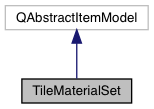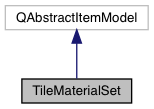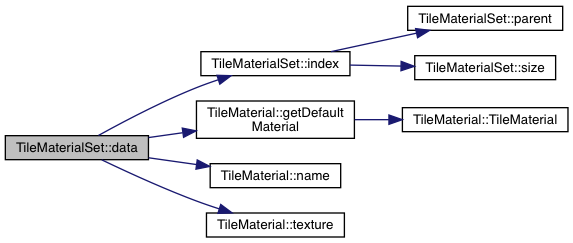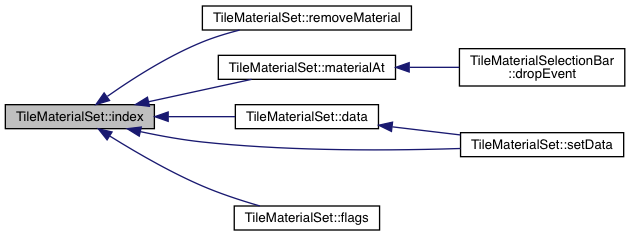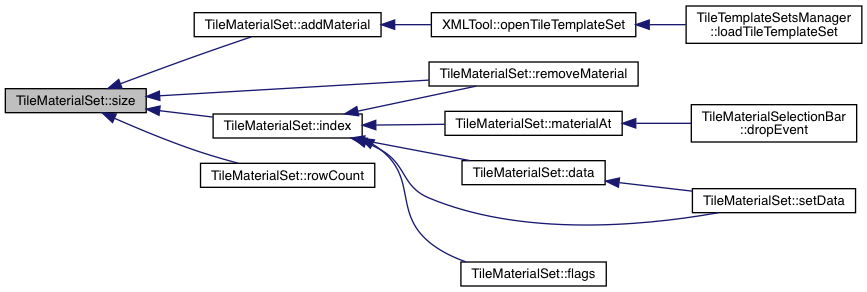#include <tilematerialset.h>
◆ addMaterial()
| void TileMaterialSet::addMaterial |
( |
TileMaterial * |
material | ) |
|
◆ columnCount()
| int TileMaterialSet::columnCount |
( |
const QModelIndex & |
parent = QModelIndex() | ) |
const |
|
override |
◆ data()
| QVariant TileMaterialSet::data |
( |
const QModelIndex & |
index, |
|
|
int |
role = Qt::DisplayRole |
|
) |
| const |
|
override |
◆ flags()
| Qt::ItemFlags TileMaterialSet::flags |
( |
const QModelIndex & |
index | ) |
const |
|
override |
◆ getInstance()
◆ index()
| QModelIndex TileMaterialSet::index |
( |
int |
row, |
|
|
int |
, |
|
|
const QModelIndex & |
parent = QModelIndex() |
|
) |
| const |
|
override |
◆ materialAt() [1/2]
◆ materialAt() [2/2]
| const TileMaterial * TileMaterialSet::materialAt |
( |
int |
index | ) |
const |
◆ materialInSet()
materialInSet If the given material is equal to one already in the set, then a pointer to the one in the set is returned, otherwise a nullptr is returned.
- Parameters
-
- Returns
◆ mimeData()
| QMimeData * TileMaterialSet::mimeData |
( |
const QModelIndexList & |
indexes | ) |
const |
|
override |
◆ parent()
| QModelIndex TileMaterialSet::parent |
( |
const QModelIndex & |
| ) |
const |
|
override |
◆ removeMaterial()
| void TileMaterialSet::removeMaterial |
( |
int |
index | ) |
|
◆ rowCount()
| int TileMaterialSet::rowCount |
( |
const QModelIndex & |
parent = QModelIndex() | ) |
const |
|
override |
◆ setData()
| bool TileMaterialSet::setData |
( |
const QModelIndex & |
index, |
|
|
const QVariant & |
value, |
|
|
int |
role = Qt::EditRole |
|
) |
| |
|
override |
◆ size()
| int TileMaterialSet::size |
( |
| ) |
const |
|
inline |
The documentation for this class was generated from the following files:
